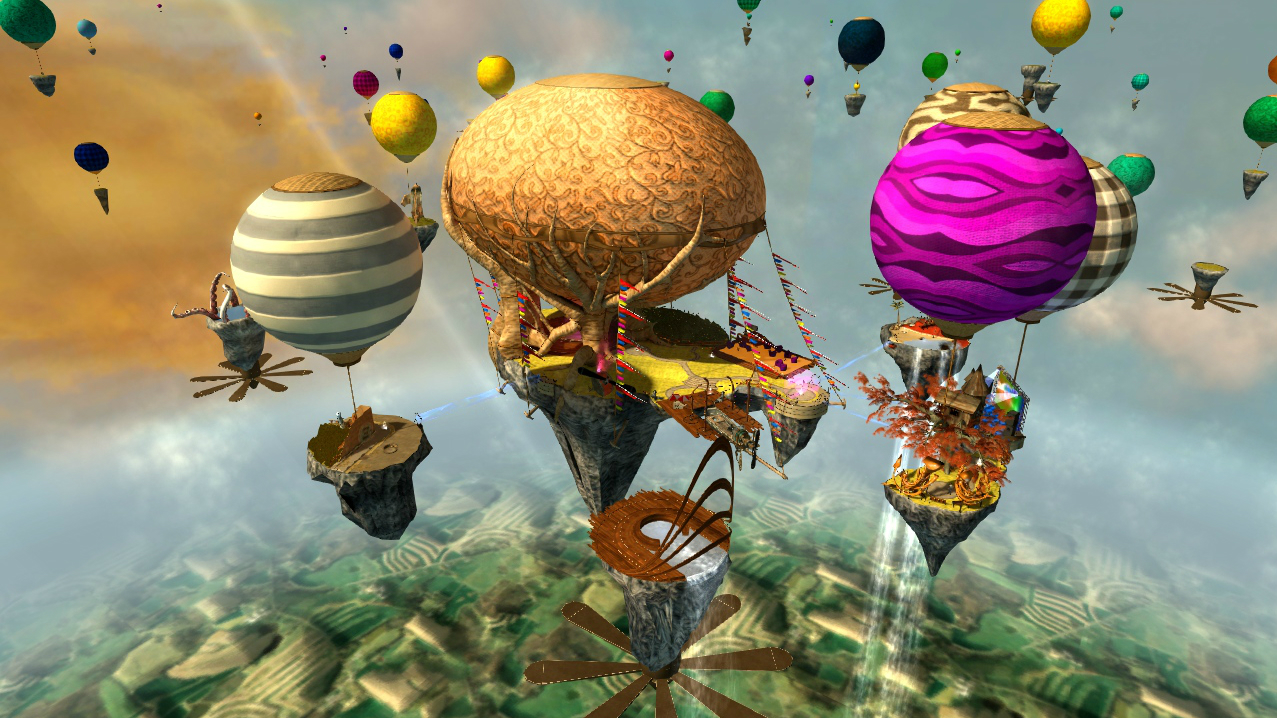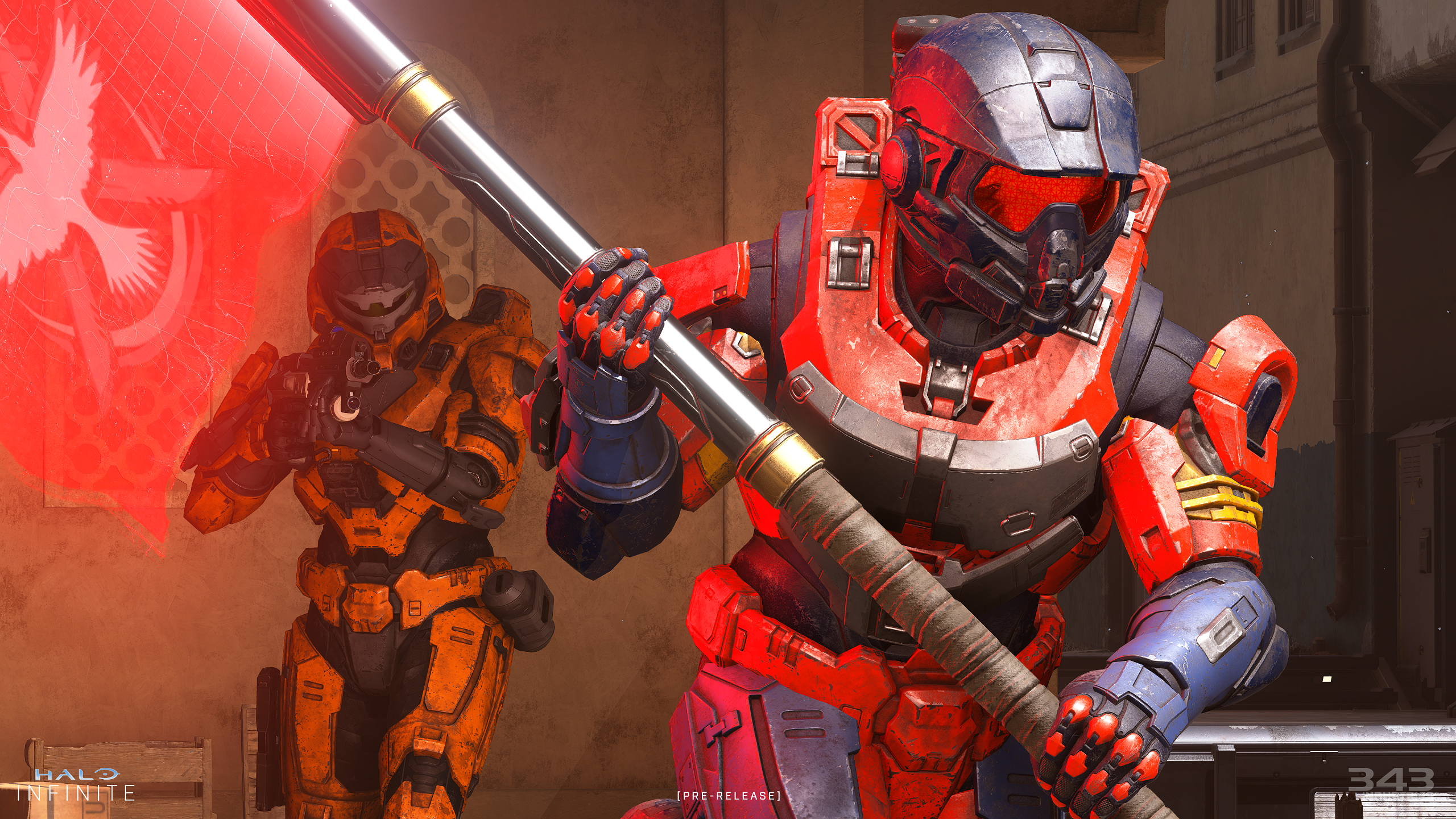
After Facebook unveiled greater plans to create its own internet-rivalling metaverse, it's already becoming such a 'thing' that Microsoft CEO Satya Nadella has detailed his desire to bring VR and AR metaverses to popular Microsoft franchises.
Nadella described Microsoft's ambitions (via The Verge) for creating more immersive game worlds, saying: "You can absolutely expect us to do things in gaming. If you take Halo as a game, it is a metaverse.
"Minecraft is a metaverse, and so is Flight Sim [Simulator]. In some sense, they’re 2D today, and the question is can you now take that to a full 3D world, and we absolutely plan to do so."
But... what does a metaverse for the Microsoft gaming world look like? And does that mean that an element of Future Xbox consoles will automatically involve a VR headset?

It essentially depends on how you define a metaverse - a term that's been floating around for a while but is still very loosely defined as combining VR, AR, multiplayer interaction and even possibly cryptocurrency, depending on who you talk to.
Games like Minecraft and Microsoft Flight Simulator already have VR support. In fact, Flight Sim is pretty close to being a metaverse, with the game offering support for multiplayer, and literally an entire Earth to explore that emulates real-world weather conditions.
For Flight Sim, it doesn't really get any more 'meta' than that.
Get daily insight, inspiration and deals in your inbox
Sign up for breaking news, reviews, opinion, top tech deals, and more.
As for Halo, though, there's certainly novelty and an audience for a mixed reality experience. A Halo VR title in general could be an impressive feat, and the open-ended level design of the series might just lend itself well to a metaverse experience.
While Nadella didn't go into further detail about Xbox's metaverse projects, his sentiments echo technology Microsoft has been working on for a while. Various projects have come and gone, including the HoloLens work and productivity AR headsets.
The recent comment from the Microsoft SEO sits alongside recent announcements that the company wants to evolve Microsoft Teams into a metaverse experience via the ambitious Microsoft Mesh holographic display technology - it's clear that collaborative work and play is firmly on the brand's roadmap.
A few years ago, Microsoft also acquired AltspaceVR, a virtual social network that we have to think will provide at least some of the framework for the company's future metaverse plans, perhaps quite similar to the demonstrations shown during the Facebook Connect 2021 event.
So... what would an Xbox multiverse look like?
The question is, then, what exactly would an Xbox metaverse be that can't already be done on our consoles or PCs?
Given how long Microsoft has been experimenting with the tech, it could end up being a genuinely transformative experience that pushes mixed reality beyond room space limitations.
That, or it's just a fancier way of saying mixed reality experiences are coming to the Xbox platform, perhaps with a consumer version of Hololens to expand the gaming experience.
The latter case would probably be more immediately useful to Microsoft. Sony, its most obvious direct competitor is already lining up its PSVR 2 headset for a release at the tail end of 2022, adding even more ways to play on PS5.

And while Sony's VR efforts are one element to head off, Facebook is busy with its Meta rebrand which will eventually include its own suite of mixed reality experiences.
With so much development happening in both VR and AR spaces right now, we can hardly blame Microsoft for wanting to show it's firmly embedded in the space, and is capable of doing so for both work and play.
Mixed reality would certainly have a home on Xbox, particularly with Xbox Game Pass potentially making such experiences readily available to paying subscribers.
In this case, perhaps we'll eventually see other Xbox franchises like Fable, Forza and Gears spin off into their own metaverse-style versions.
Plus, having them available at no extra cost on Game Pass would certainly make the price of an expensive Microsoft headset that much more palatable - especially if it's a device that can be used at work for a virtual Teams hangout and then doubles as a portal to a world where you can inhabit Master Chief in the evening.

Rhys is TRG's Hardware Editor, and has been part of the TechRadar team for more than two years. Particularly passionate about high-quality third-party controllers and headsets, as well as the latest and greatest in fight sticks and VR, Rhys strives to provide easy-to-read, informative coverage on gaming hardware of all kinds. As for the games themselves, Rhys is especially keen on fighting and racing games, as well as soulslikes and RPGs.